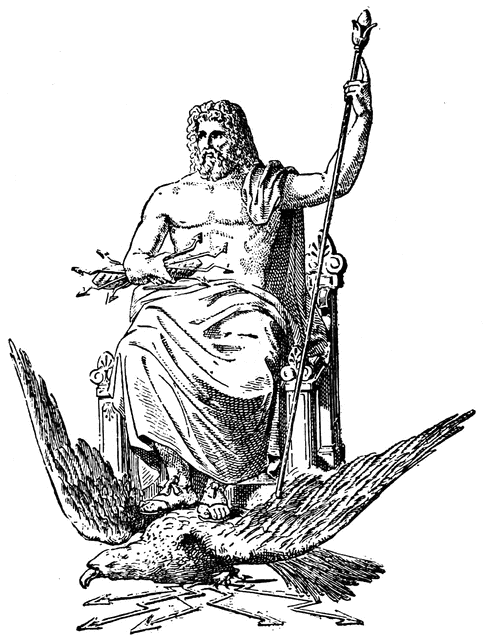
Here's another translation of that final passage from Women of Trachis, by Michael Jameson, and this time in verse (and I like it much better that way), which I found in an article (JSTOR) on "The Euthyphro Dilemma":
You see how little compassion the GodsWhat I've learned between writing the previous post yesterday and writing this one today is that there has been a great deal of discussion for some time (like, centuries worth) about whether these last lines (spoken by Heracles' son Hyllus) are meant as an indictment of the gods, or whether Hyllus (and Sophocles) believed that Heracles deserved his fate, and that the gods were acting justly in punishing him so harshly. Since I don't read Greek, I'm hesitant to say which side I fall on. The differences in the two translations show how difficult it is for someone who doesn't read Greek to determine how this passage should be interpreted. One calls the gods' actions "shameful," the other refers to their "cruelty." "Shameful" certainly implies that the gods weren't acting justly; "cruelty" is more ambiguous, though it certainly implies a displeasure with what the gods have done, possibly because it's unjust, or maybe just because it's happening to Hyllus' own family. But these translations are themselves interpretations of Sophocles, so you can't put too much stock in them when trying to figure out what Sophocles himself was trying to say.
have shown in all that's happened; they
who are called our fathers, who begot us,
can look upon such suffering.
No one can foresee what is to come.
What is here now is pitiful for us
and shameful for the Gods;
but of all men it is hardest for him
who is the victim of this disaster.
Maiden, come from the house with us.
You have seen a terrible death
and agonies, many and strange, and there is
nothing here wish is not Zeus.
Even so, these lines in English, and the play itself, are still interesting in light of the Problem of Evil, and, as the article in which I found this translation suggests, may have contained just the sort of "conception of the divine" that Plato/Socrates was considering in the Euthyphro, from which the Euthyphro Dilemma (which is, it should be noted, not entirely true to the dialogue itself) is taken. What's more, since the Euthyphro Dilemma and the Problem of Evil are not entirely unrelated, Sophocles' play might serve as a useful stimulant for thought on the issues they raise.

0 comments:
Post a Comment